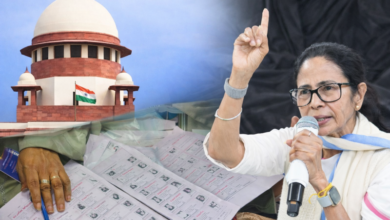The Uniform Civil Code Explained

On October 29, Gujarat joined the group of BJP-ruled States that have advocated for the adoption of the Uniform Civil Code ahead of the 2019 Assembly elections (UCC). Harsh Sanghavi, the home minister for Gujarat, and Parshottam Rupala, the minister for the union, made the announcement that the state would establish a committee under the direction of a retired High Court judge to assess all potential implementation strategies.
According to the Uniform Civil Code (UCC), all religious communities in India would be subject to one legislation that would govern issues including marriage, divorce, inheritance, and adoption. The law is mandated by Article 44 of the Constitution, which states that the state must work to establish a uniform civil code for its residents across the whole Indian subcontinent.
The Bharatiya Janata Party (BJP), which has been pushing for the legislation in Parliament, has made it a top priority because the issue has been at the center of political narrative and debate for more than a century. The implementation of UCC was the first promise made by a party, and the saffron party included it in its 2019 Lok Sabha election manifesto.
What makes Article 44 significant?
To combat prejudice against vulnerable groups and harmonize various cultural groups across the nation, Article 44 of the Directive Principles of the Indian Constitution was created. While drafting the Constitution, Dr. B. R. Ambedkar stated that while a UCC is desirable, it should remain voluntary for the time being. As a result, Article 35 of the draught Constitution was added as Article 44 of the Directive Principles of the State Policy in Part IV of the Constitution of India. It was included in the Constitution as a provision that would be fulfilled whenever the country was ready to embrace it and the UCC could gain social support.
Ambedkar stated in his speech to the Constituent Assembly, “There is no reason for anyone to worry that the State will use its authority in a way that might offend Christians, Muslims, or members of any other community if it were to use it right away. If the government did that, I believe it would be insane.”
Whence came to the Uniform Civil Code?
The British government’s report from 1835, which emphasized the need for uniformity in the codification of Indian law relating to crimes, evidence, and contracts and specifically recommended that personal laws of Hindus and Muslims be kept outside of such codification, is where the UCC first emerged.
The government created the B N Rau Committee to codify Hindu law in 1941 as a result of an increase in laws addressing personal matters at the end of British rule. The Hindu Law Committee’s task was to investigate whether common Hindu laws were necessary. The committee proposed a codified Hindu law that would grant women equal rights in accordance with the scriptures. The 1937 Act was examined, and the committee suggested that Hindus have their own civil code for marriage and succession.
What is the Hindu Code Bill?
After the Constitution was adopted in 1951, the Rau Committee report draft was presented to a select committee led by B. R. Ambedkar for discussion. The Hindu Code Bill expired and was resubmitted in 1952 as disputes persisted. After being amended, the law governing intestate or unwilled succession among Hindus, Buddhists, Jains, and Sikhs was codified in 1956 as the Hindu Succession Act. The Act changed Hindu personal law and gave women more ownership and property rights. It granted women the right to own property in their father’s estate.
For a male who passes away intestate, the Act of 1956’s general rules of succession indicates that Class I heirs succeed before those in other classes. More descendants were added to the Act in 2005, boosting females to Class I heirs. The daughter receives the same portion that a son does.
Difference between civil laws and criminal laws
The civil laws of India are affected by faith, although the criminal laws are uniform and apply to everyone equally, regardless of their religious views. The personal laws that apply in civil matters, however, influenced by religious sources, have always been applied in accordance with constitutional standards.
What are personal laws?
laws developed after careful analysis of traditions and religious texts that are applicable to a particular group of people based on their caste, religion, faith, and beliefs. Hindu and Muslim personal law derives from and is governed by ancient religious writings.
Hinduism applies personal laws to cases involving legal matters such as inheritance, succession, marriage, adoption, co-parenting, sons’ debt-paying responsibilities, the division of family assets, maintenance, guardianship, and charitable contributions. Personal laws, which have their roots in the Quran, are applicable in Islam in regard to inheritance, wills, succession, legacies, marriage, wakfs, dowry, guardianship, divorce, gifts, and pre-emption.
The role of the Uniform Civil Code
The UCC attempts to safeguard vulnerable groups, including women and religious minorities, as envisioned by Ambedkar, while simultaneously fostering nationalistic fervor via unity. When put into effect, the code will aim to make laws that are currently divided based on religious views, such as the Hindu code bill, Sharia law, and others, simpler. The code will make the complicated regulations governing marriage ceremonies, succession, inheritance, and adoptions simpler and more universal. All citizens will then be subject to the same civil law, regardless of their religious affiliation.
News Mania Desk






